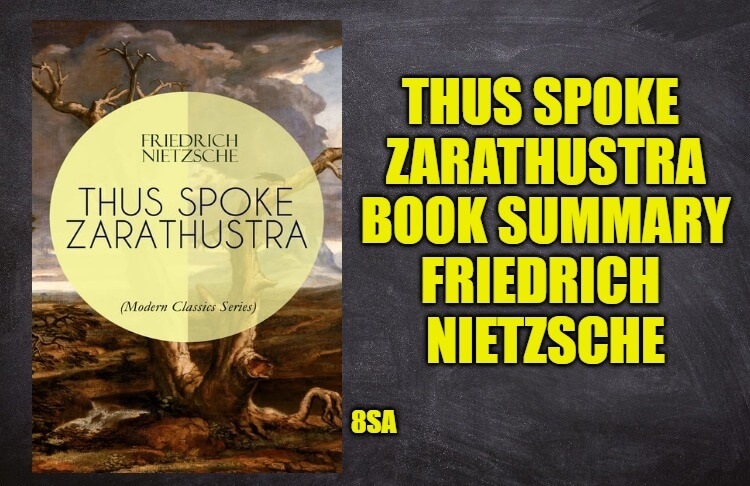Thus Spoke Zarathustra book summary written by Friedrich Nietzsche. Information about the theme, analysis and the summary of the book Thus Spoke Zarathustra.

Thus Spoke Zarathustra
“Thus Spoke Zarathustra” is a philosophical novel by German philosopher Friedrich Nietzsche, first published in 1883-1885. The book is considered a major work of Western philosophy and presents Nietzsche’s ideas on morality, religion, and the meaning of life. The title character Zarathustra speaks in a series of speeches, addressing various topics including the death of God, the will to power, and the eternal recurrence. The book is written in a unique style that blends poetry, philosophical musings, and prose.
Summary
“Thus Spoke Zarathustra” is a philosophical novel by German philosopher Friedrich Nietzsche, first published between 1883 and 1885. The book is considered one of Nietzsche’s most important works and presents his ideas on morality, religion, and the meaning of life. The novel is structured as a series of speeches by the title character Zarathustra, who delivers his thoughts and musings on various topics.
Throughout the book, Zarathustra reflects on the death of God and the consequences of this event on society and morality. He argues that traditional Christian morality is no longer relevant in a world where God is dead, and that humanity must create a new morality that is based on a “will to power.” The “will to power” is a concept in Nietzsche’s philosophy that refers to the innate drive that all living things have to achieve their full potential and to overcome obstacles in their environment.
Zarathustra also speaks about the concept of the “eternal recurrence,” which is the idea that everything in the universe happens over and over again, forever. Nietzsche believed that accepting the eternal recurrence was a way of embracing life and its hardships, rather than shying away from them.
The book is written in a unique style that blends poetry, philosophical musings, and prose. It is often seen as a challenge to read, but is considered a classic of Western philosophy for its bold and innovative ideas. “Thus Spoke Zarathustra” continues to be widely read and discussed, and its impact on philosophy and culture is still felt today.
Analysis
“Thus Spoke Zarathustra” is a complex work that offers a rich and multifaceted analysis of Nietzsche’s philosophical views. The book can be interpreted in a number of ways, but some of its key themes include:
- Death of God: One of the most central themes in “Thus Spoke Zarathustra” is the death of God, which Nietzsche sees as a profound event that has far-reaching consequences for society and morality. He argues that traditional Christian morality no longer makes sense in a world without God, and that humanity must create a new morality based on the “will to power.”
- Will to Power: Nietzsche’s concept of the “will to power” is a central theme in the book, and is seen as the driving force behind all living things. It refers to the innate drive to achieve one’s full potential and to overcome obstacles in one’s environment.
- Eternal Recurrence: The idea of the “eternal recurrence” is another central theme in the book, and is seen as a way of embracing life and its hardships, rather than shying away from them. Nietzsche believed that accepting the eternal recurrence was a way of accepting life as it is, and of finding meaning in the face of its difficulties.
- Morality: The book is a critique of traditional morality, and argues that morality must be created anew in a world without God. Zarathustra speaks about the need for a new morality that is based on the “will to power” rather than traditional religious beliefs.
Overall, “Thus Spoke Zarathustra” is a complex and challenging work that offers a bold and innovative analysis of Nietzsche’s philosophical views. The book continues to be widely read and discussed, and its impact on philosophy and culture is still felt today.